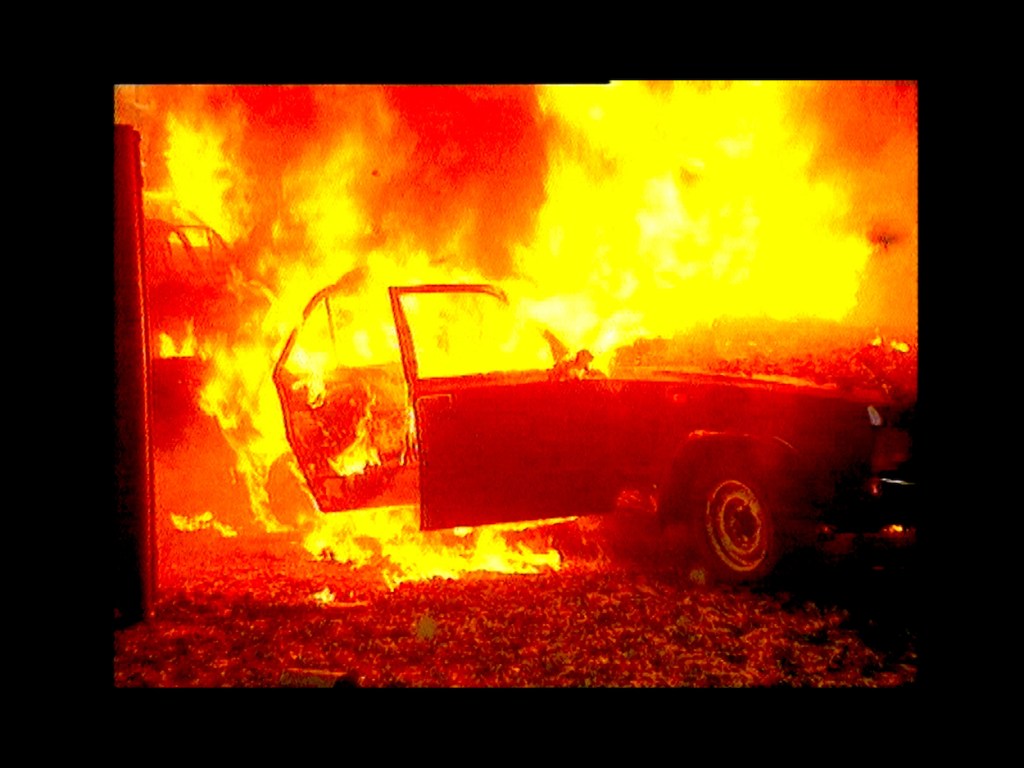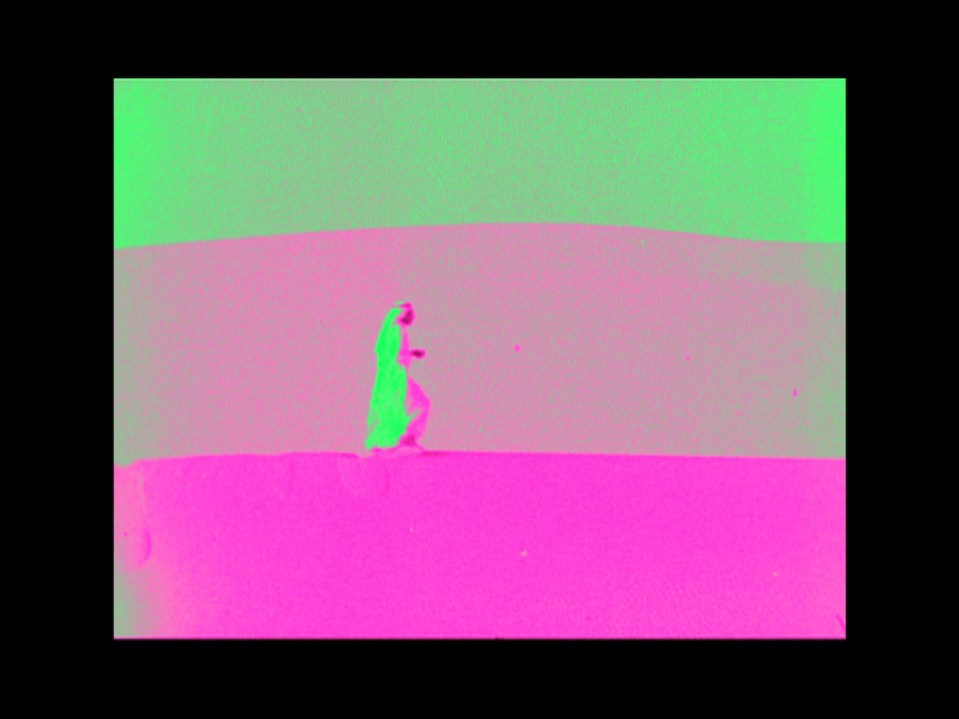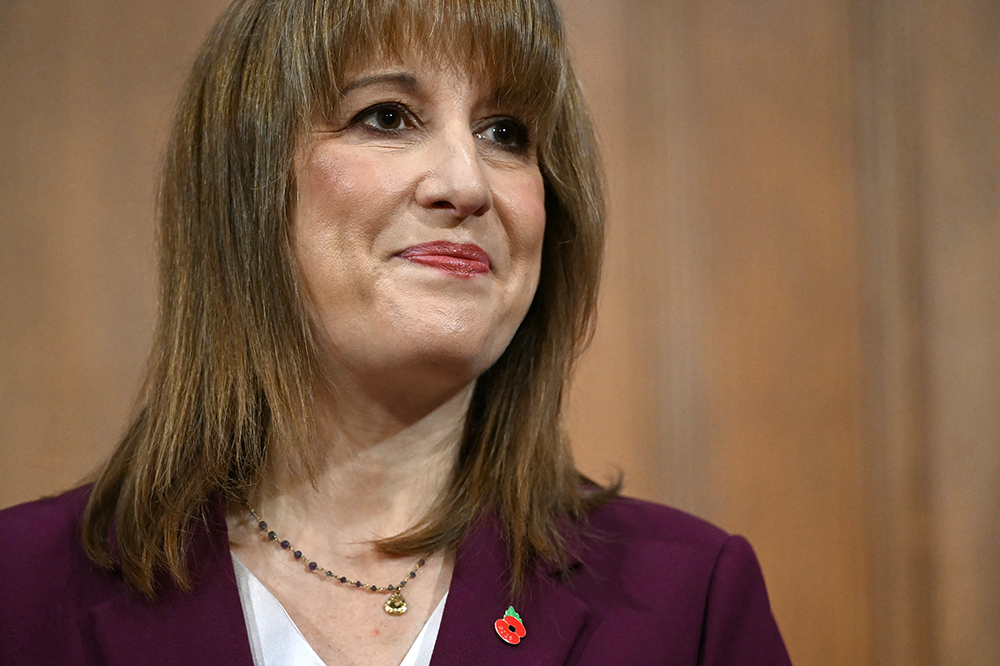Adam Curtis used to make TikToks but he doesn’t want to talk about them. ‘I did quite a lot of TikTok, privately,’ he says, ‘just under another name. They’re probably out there somewhere…’ His head rests in his hand and his elbow on the chair next to him, the two of us among pink flowers at the kitchen table in the Soho townhouse where he works. He looks at me and repeats: ‘They’re private.’
For 30 years Curtis has been making documentaries for the BBC about how Britain became a sad place, or, in his own words: ‘What happened after the Cold War, mixed in with a deeper sense of… I think melancholy. A sense we were once powerful.’
‘Never trust a liberal’
Shifty is his new film. Outwardly the five episodes chart the breakdown of society’s collective structures from Margaret Thatcher to Tony Blair. Really they are Curtis’s attempt at tracing the origins of a strange emotion that he says has become general in Britain, a feeling that ‘there is a big thing going on behind the surface’. ‘I think there’s something new going on inside people’s heads and no one has got the language to describe it,’ he tells me.
It is this emotion, Curtis believes, that caused ‘Leave’ to win the Brexit referendum and explains Reform’s popularity. He is describing a sort of revolutionary feeling, I think. If you go back and watch previous Curtis documentaries, flick between them, do an Adam Curtis to Adam Curtis, you realise that they mash together quite neatly, and that his work has a single ambition: to hold this anxious spirit to the sun, twirl it around in his hand and observe it from different angles.
So Shifty is an origin story. Curtis says that during the 1980s and 1990s we privatised and financed our way into nasty self-centredness. People felt unmoored and politicians became unable to hold communities together. Curtis leaves it to the viewer to draw the easy line to today’s politics. In one of the final scenes in the series, Peter Mandelson visits the Millennium Dome, which is then under construction. ‘It’s marvellous, absolutely marvellous,’ he tells Tony Blair on a phone call. ‘You’ll think it’s incredible, believe me. There’s a zone with lots of emblems of Britain in it. I suddenly saw a photograph of a plate of toad-in-the-hole. I loved toad-in-the-hole when I was little!’ The Blair government, and every government since, keeps giving us more toad-in-the-hole.
Curtis’s films are always about the past because he, like the politicians he describes, is unable to define the present. ‘There are certain aspects of modern power that you cannot illustrate,’ he says. ‘And they make me cry, sometimes literally. I’m scrabbling for shots. I’ll tell you what they are. They’re computers. They govern our lives, but nothing happens. And that expands to things like HR because that’s just men and women in glass offices doing keystrokes which will govern your life and destroy your life or whatever. But there’s nothing there. Finance. I’ve gone mad sometimes looking for shots. The normal solution for a television journalist is to have a reporter gazing at a screen with the glow on their face musing to themselves. And I would not do that. You have to find another way.’
‘This really gets me,’ he continues. ‘I feel like so much of the modern world is just not being recorded, got at.’ I ask if he really cries about it. ‘Out of frustration, yeah. Just like… “Oh for fuck’s sake! How do I illustrate this?” I can’t do another shot of a server farm. I just can’t.’
Curtis says that as ‘modern power’ has become unillustratable, so has ‘the self’. He says that in the BBC archive footage, somewhere in 1997 or 1998, people start to speak and carry themselves in unnatural ways when they know they are in front of a camera. This is before social media and reality television. He can’t explain it. We also, obviously, spend a decreasing amount of time interacting with the physical world. ‘Isn’t that fascinating?’ Curtis says. ‘In the age where people are exposing themselves more and more and more and more, it’s… [he’s referring to ‘the self’] not there.’
I am aware that all of this talk of emotions and feelings and defining the present and the self sounds mysterious and perhaps overthought, but something in it sounds true when it comes from Curtis. ‘You know that’s not right, you know it from yourself,’ he will say in conversation. Curtis used to narrate his documentaries, but doesn’t anymore. His voice actually got deeper with every new series, until it vanished completely in his 2022 film Russia 1985-1999: TraumaZone, which is about the end of the Soviet Union. In his films and in person Curtis does not make arguments, he summons moods. He also refuses to use the word ‘vibe’.

‘Dominic Cummings got in touch with me after my Russia thing,’ Curtis says. ‘He was in Russia during that time. I just found him very funny. I like his snark, and I like the fact that he realises that the bubble is not good. I respect him for that.’ I ask whether politicians have asked him to help them portray their vision of the country to the population. He says he has been contacted by politicians, and that they ‘are always after something’, but that ‘no one has ever asked me to help them.’
People speculate about Curtis’s own politics, and he wants to make it very clear to me that he is not a liberal. ‘Never trust a liberal,’ he says. ‘The one thing the patrician liberals can’t examine is themselves. They really cannot do it. I find it absolutely astonishing. After Brexit, they didn’t examine their role in it. They did not examine any role they might have played.’
Curtis says his views on politics are born out of north Kent, where he comes from. ‘It’s… What’s the word… Independent,’ he says. ‘That’s the polite way of putting it.’ Can you explain that a little more, I ask. ‘No,’ he replies. ‘I challenge anyone to say what my politics are,’ he says later, ‘because quite frankly I haven’t got any. I’m a completely modern creature, like you I’m sure, and a lot of my friends. I react to events as they come along. You are aware that power is unequal and you shouldn’t cry about that fact.’
‘We might be living through a revolution, but we don’t know it’
We go to the study where Curtis edits. There is some Lana Del Rey merch, two monitors and a mess of hard-drives. (The townhouse is not his, by the way. It is owned by a bohemian lady. She lets him work here.) ‘Every now and then, I wonder whether it’s going to crash,’ he says, nodding at the mess. ‘Well, I mean, it does crash… But it’s going to properly crash. And then I’m fucked.’
He says that the hard part of his job is coming up with ‘the idea and the stories’. It took him about nine months to come up with the introduction to Bitter Lake, which is the best sequence of any of his films, and ten minutes to make it. Curtis finds editing is easy and satisfying, and does it late at night. ‘There’s a whole tradition, and it goes so deep, of editors, probably because they’re not really in control and they want their bit of control, they go: “We’ve got to cut a frame off… here”. I know that no one notices that. What they really notice is whether it’s drawing them in, whether they’re going along with you for the ride.’ Because he edits his documentaries himself, he costs the BBC very little. Shifty cost £17,500 to make.
Curtis’s next documentary might be about America, he says, but it could also be about ‘living in a society where a lot of things look normal but actually behind them they’re not.’ We are currently, he says, ‘in a sort of cosplay of everything. And behind it, there’s this seething mass.’ ‘We might be living through a revolution, but we don’t know it because it’s happening already inside millions of people’s heads. It’ll suddenly burst through to us: “OH MY FUCK!”’








Comments